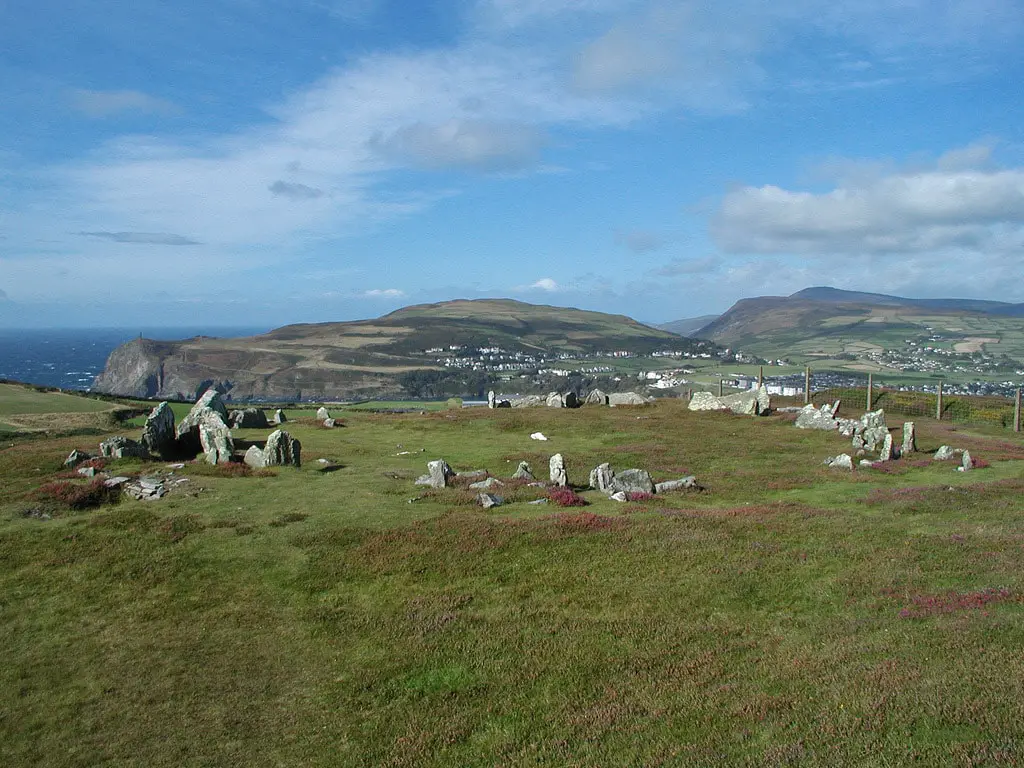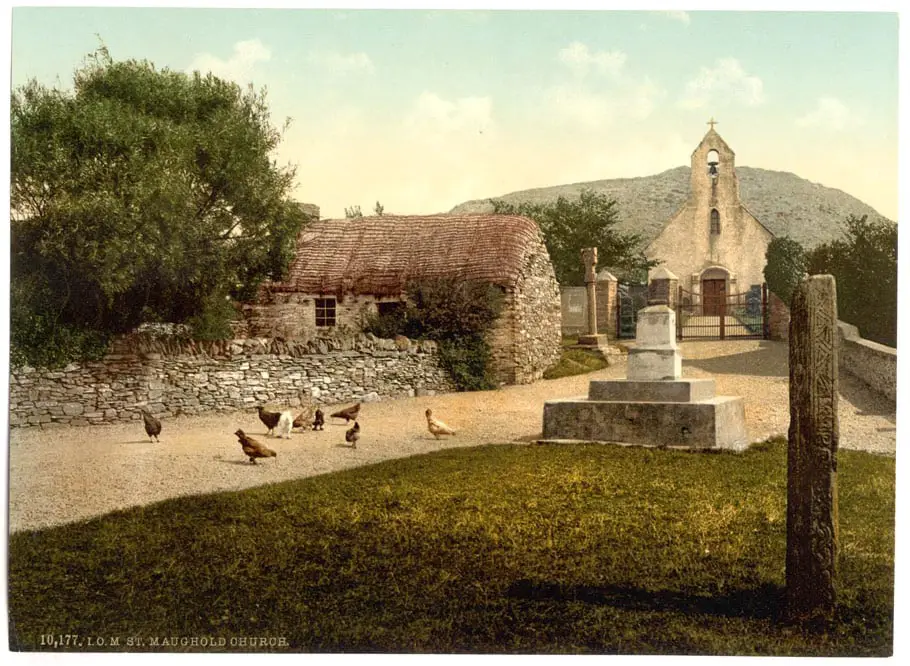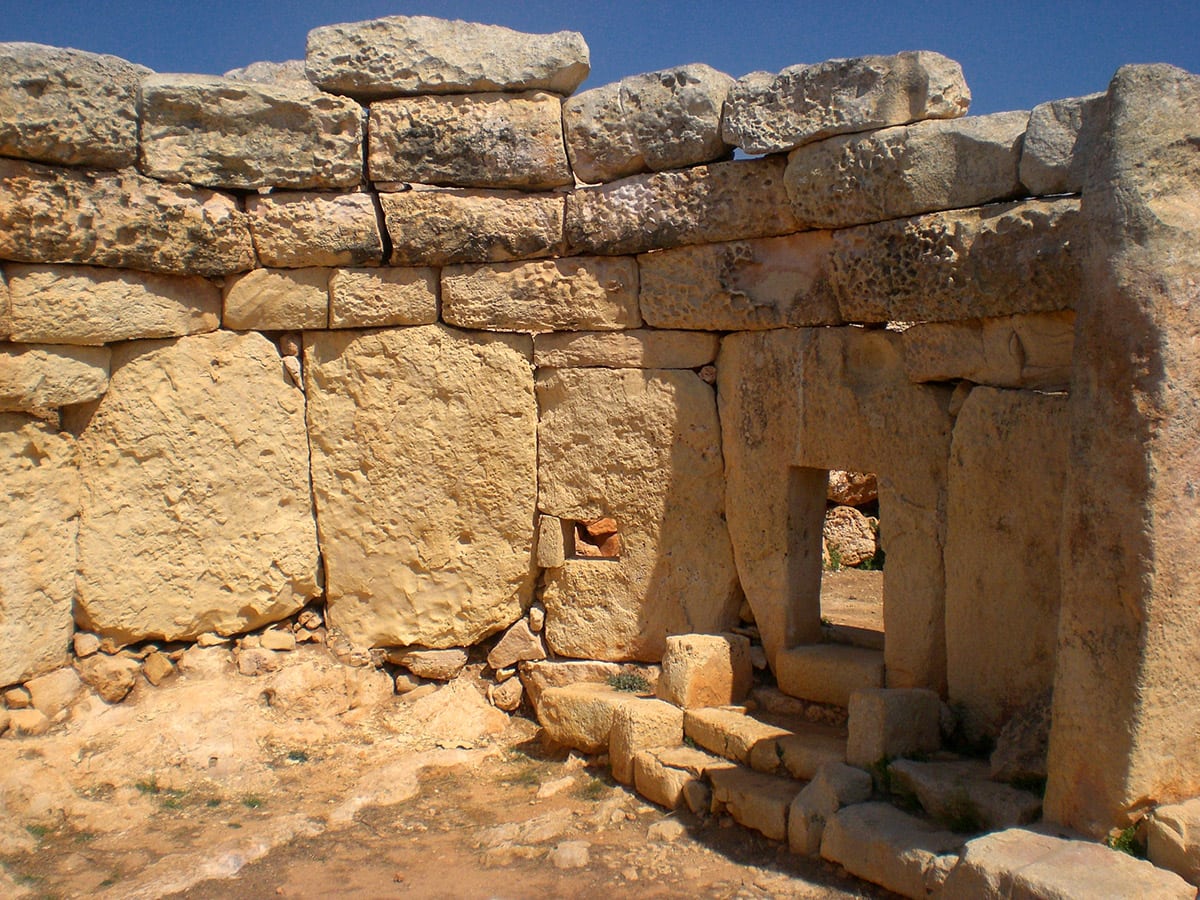World 🢖 Europe 🢖 United Kingdom 🢖 Isle of Man
Megaliths 🢔 Archaeological wonders 🢔 Categories of wonders
Wonder
Meayll Hill (Mull Hill) Stone Circle

 In short
In short
The original Manx name of the amazing Meayll Hill Stone Circle is Lhiaght ny Virragh – "cairn of the pointed rock". According to local stories some people have had strange, unpleasant experiences in this desolate moorland. But – besides the purported paranormal qualities this Neolithic burial complex represents a riddle to scientists as well.
 33.3%
33.3%
GPS coordinates
Location, address
Alternate names
Age
Map of the site
If you see this after your page is loaded completely, leafletJS files are missing.
 In detail
In detail
Ghostly moorland
The unusual ring of stones has been well known to local people, but it does not have a good name. People have told stories about sudden disorientation here, weird moving lights, some have heard unexplained sounds – as if galloping invisible horses. Most impressive is the story about a ghostly army of horsemen riding along the stone ring – not unlike the gruesome stories about the Wild Hunt elsewhere in the British Isles.
Ring of graves
Despite its name Meayll Hill Stone Circle (Meayll in Manx means "bald") is not a true megalithic stone circle (like Stonehenge) – it is a unique group of passage graves.
We will never know why – but here the Neolithic people placed their graves in a circle. In total there are twelve stone chambers grouped in pairs. Like sunbeams in children painting six passages are leading towards each pair of chambers.

Chambers form a circle with two gaps. The larger gap is in the north-north-west (4.9 m) and smaller – in the south-south-east (5.2 m). These are possible entrances.
In the north-south direction the diameter of the ring is 16.2 m, in the east-west direction – 15.6 m. The open interior is 13.4 m across.
Passages leading towards the graves are lined with standing stones, the chambers are formed of enormous blocks of crude stone and paved with flat stones. Some of the stones on the western side reach up to 1 m high. Neolithic builders used local slates for construction.
Each of the passage graves of Meayll Hill Stone Circle is a rather traditional monument characteristic of Neolithic farmers in the British Isles. But the composition of 12 such passage graves in a ring is very unusual.
There are few similar monuments in the world. Distantly similar is Cerrig Y Gof – an oval setting of five burial chambers in Pembrokeshire, Wales. On the Isle of Man are found also traces of so-called "disc-shaped barrows".
Unique Neolithic burial
People are rather conservative regarding the traditions of burial. Each culture develops its own rituals and traditions to commemorate their deceased ones and in general, don’t change these traditions in haste. Nevertheless, all over the world there are found exceptions to this rule – highly original, elaborate ancient burials that differ from any other monuments nearby.
Meayll Hill Stone Circle is one of such exceptions (Dwarfie Stane in Orkney Islands is one more).
Another amazing feature is a group of stone settings – fundaments of Neolithic huts to the east from passage graves. Most likely the deceased ones lived in this village. There has been found even an ancient path between the village and its magnificent burial complex.
Bones and ceramics
Local historian P.M.C.Kermode and Scottish scientist W.A.Herdman organized the first excavations in the mysterious stone circle – one in August – September 1893 (results published in 1904) and next – in 1911 (published in 1914). A.S.Henshall explored the graves in 1971 (published in 1978).
Findings show that Meayll people were skilled potters who produced diverse, richly decorated vessels. There were found many sherds of these vessels. These urns were used to hold the remains of the deceased – in each burial cist were placed several such urns. There were found also cremated bones, flint arrowheads, knives, and – rounded white quartz pebbles.
Burial in the centre of the ring
Exploration shows that in the middle of the ring was located one more burial – most likely older than the ring of graves around it. The middle part of the ring had a more traditional passage grave covered with a heap of rubble. It seems that this central grave later developed into an object of special importance to the local community.
Plundering
Unfortunately this ancient burial has been ransacked well before the first excavations. People have gathered everything that can be easily carried away – even all the capstones of burial chambers. Damage has been done also by the seekers of valuables.
Nothing is forever – even the respect for the dead.
References
- The Isle of Man, Celebrating a Sense of Place, edited by Vaughan Robinson & Danny McCarroll, Liverpool University Press. 1990.
- Aubrey Burl. A Guide to the Stone Circles of Britain, Ireland and Brittany. 1995, 2005 by Yale University.
 Linked articles
Linked articles

Wonders of the Isle of Man
The Isle of Man has several very interesting historical landmarks: the island has a distinct history.

Megaliths
One of the most fascinating groups of archaeological monuments are prehistoric structures made of stones – megaliths. Through the ages, people have loved to strain their minds to find a sensible explanation for the many riddles posed by megaliths.
Even today, we can admit with some pleasure, there are thousands of mysteries left for us.

Wonders of Europe
The heritage of Europe is diverse and endlessly interesting. Incomparably rich is the wealth of European historical architecture, but this part of the world has exciting natural heritage and archaeological heritage as well.
 Recommended books
Recommended books
Isle of Man, A Megalithic Journey
Neil McDonald has been leading tour groups around the Isle of Man for many years. He is an expert on the ancient, mystical and historical sites that cover the island, many of which are quite unique. Neil has used his experience to create this book that takes the reader on a circular tour of the best sites of the Isle of Man. With detailed descriptions, it also includes directions right up to the sites. This book is therefore an ideal companion on any personal megalithic journey of the island.
The Story of the Isle of Man
The author takes the reader through the history and explains some of the mythology which pertains to the Isle of Man and their historical connection to the Kings and Earls.


